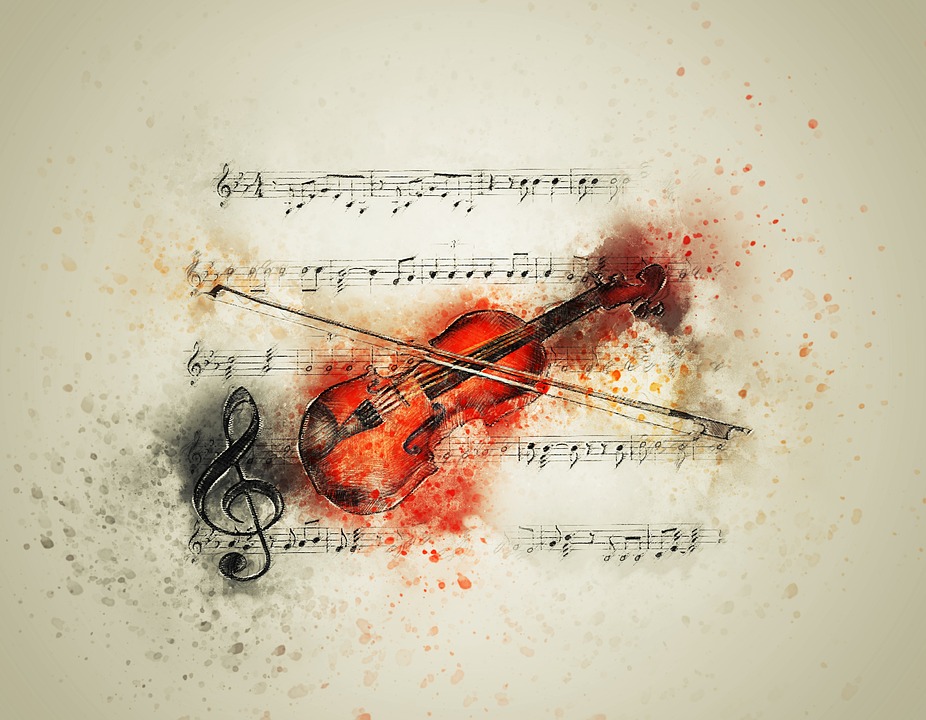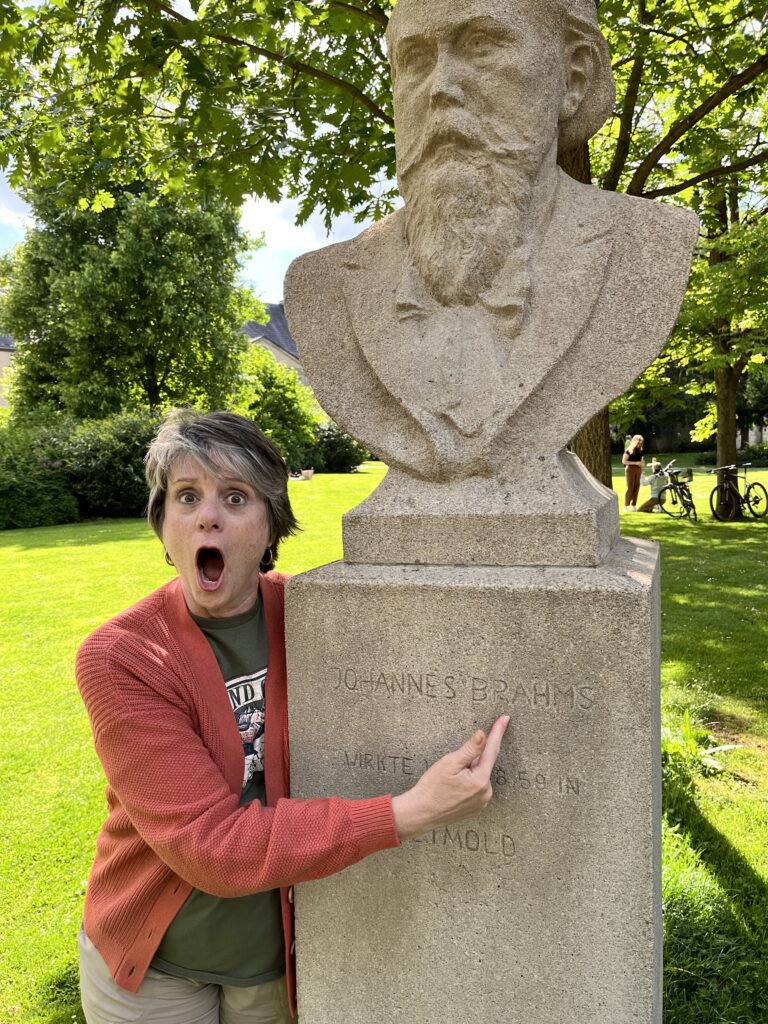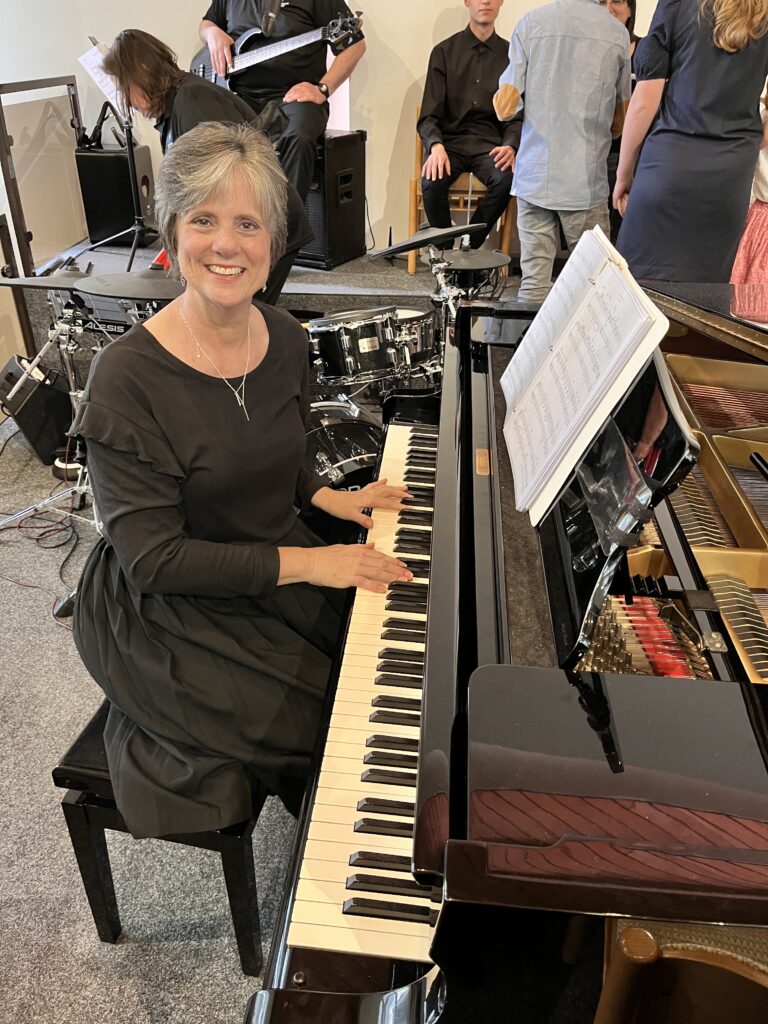
Brahms for the Brain
I had only been wearing my Garmin watch for a short time but was beginning to enjoy the feedback it gave me towards reaching my fitness goals. I was encouraged to see how many steps I had taken throughout the day and the distance covered. I didn’t have a good grasp yet on my averages, so I was surprised when I checked my watch late one afternoon and saw that it registered over two miles. Hmmm, I didn’t realize I had walked that far! The next day I was more conscious of my distance and became suspicious. I remembered playing the piano and organ both days. Sure enough, my practicing was counting steps! Lots of them.
Playing the piano can be a workout, but this was taking it too far. I laughed over my “exercise,†but it turns out that playing an instrument promotes a lot of good for the body. The benefits of playing an instrument help your brain more than any other activity, according to John Rampton. Physical and physiological advantages are seen in those who play a musical instrument regardless of age.
Music Strikes a Chord

When I was in second grade, I told my mother I wanted to learn how to play the piano. Maybe I wanted to be like my older sister, who was taking piano lessons; I don’t know. Nonetheless, I liked the idea. Mother wasn’t too keen on it. Unbeknownst to me, adding another expense in our family’s already tight budget was a challenge. Mother was also concerned that I was too young. I convinced her I wasn’t and that she and Daddy should give me a chance. Fortunately, they did.
I’ve been playing ever since, using my skills for church choirs, religious services, school events, accompanying soloists, funerals, weddings, entertainment, receptions, mission activities, and more. I find great pleasure in using the talent the Lord has given me.
I never considered the hidden blessing that lurked behind my skills other than the humility of service, joy of music, and fulfillment of accomplishment.
Music Goes to the Head
Playing an instrument is a rich and complex experience integrating information from the senses of vision, hearing, and touch. Practicing music sharpens fine motor skills and improves hand-eye coordination during a child’s developing years. Even brief periods of musical training as a child can have long-lasting benefits, including resilience to any age-related decline in hearing and increased protection against dementia.
“The evidence that musical training enhances things like working memory and language is very robust,†says Catherine Loveday, a neuropsychologist at the University of Westminster.
Musical training at an early age changes brain structure and function, making your brain more efficient. This can stay with you for the rest of your life. The corpus callosum, the nerve fibers that connect the two sides of the brain, is larger in musicians, offering an advantage. The gray matter volume in some regions of the brain is also increased.
Brain shrinkage caused by the loss of neurons occurs naturally as you age, but brain atrophy is a faster-occurring shrinkage that causes memory loss and cognitive impairment. Brain-scan studies have found that the change in musicians’ brains is related to the age when training began. The younger a child learns to play an instrument, the more dramatic the changes. As little as fourteen months of musical training shows more powerful structural and functional brain changes.
Seniors can benefit, too. Increased levels of Human Growth Hormone are secreted, slowing the adverse effects of aging.
Music Gets an “Aâ€
An article published by Steinway & Sons claims that children who played the piano for a few years can remember twenty percent more vocabulary words than their peers. Maybe that explains why I loved vocabulary so much in school. I looked forward to acing those Friday vocabulary tests.

Childhood musicians are better equipped later in life to retain information from lectures. Good thing. I needed all the help I could get in college. Those medical technologist courses required a significant amount of memorization. (I shudder as I flashback to my Parasitology course.)
Here are some other ways how learning to play an instrument strengthens your brain:
- Strengthens reading skills
- Enables better processing of multiple things at once
- Increases the brain’s blood flow (providing energy)
- Helps the brain recover (improving motor control in stroke patients)
- Reduces stress and depression
- Helps problem-solving and decision-making
As I consider the joy of playing music that honors and brings praise to the Father, I am awed at the lifelong blessings God gives me in return. I am also grateful to my parents, who sacrificed to allow me to pursue a dream.
Gotta go now. Time to practice for Sunday morning’s duet.
4 Comments
Leave a Comment
Follow This Blog
Ewe R Blessed Ministries / Karen O. Allen

Always enjoy your posts, as you are a “master” at sharing the lessons God teaches you with others. I do have to ask though. Did your older sister continue with the piano, and did she take her musical talents as far as you have in your service to God?
You are such an encourager to me. Thanks for commending my lessons in life. To answer your question, no, my older sister did not continue her piano lessons very long. She never enhanced her skills. My younger sister picked up violin, however, and I joined her with viola for a while. Nancy did not pursue her musical talents either, but she does have a nice alto voice that she uses to the glory of God in a choir. Of the three of us, I am the one who made the decision to use my musical abilities to a greater extent. It has been a strong supplemental income as well through the years. Thanks for asking.
This article makes so much sense to me! The vocabulary retention and fact retention later on in life…I experienced that too. Started piano when I was 3 or 4. Very interesting article Karen. Well done! (I also remember that picture. 🙂
Thanks for your comment, Dale. I bet you do indeed remember Mr. Brahms bust in Germany.